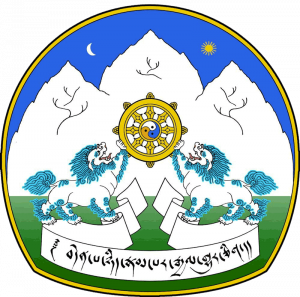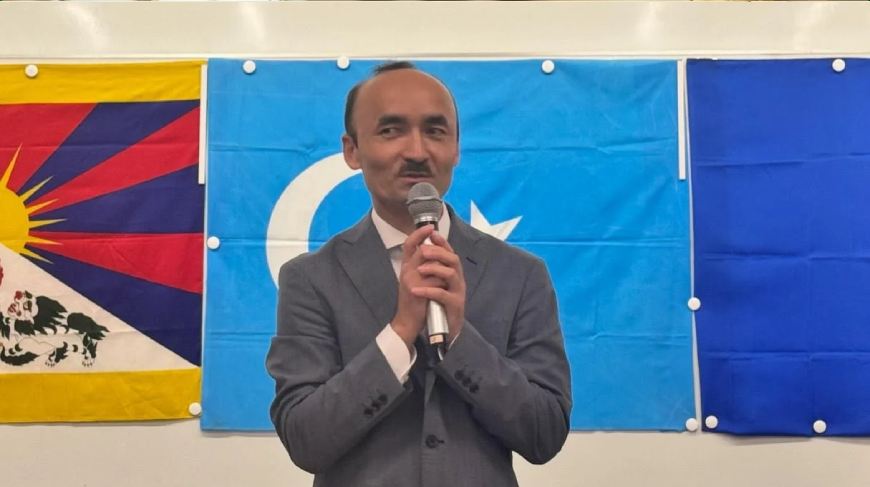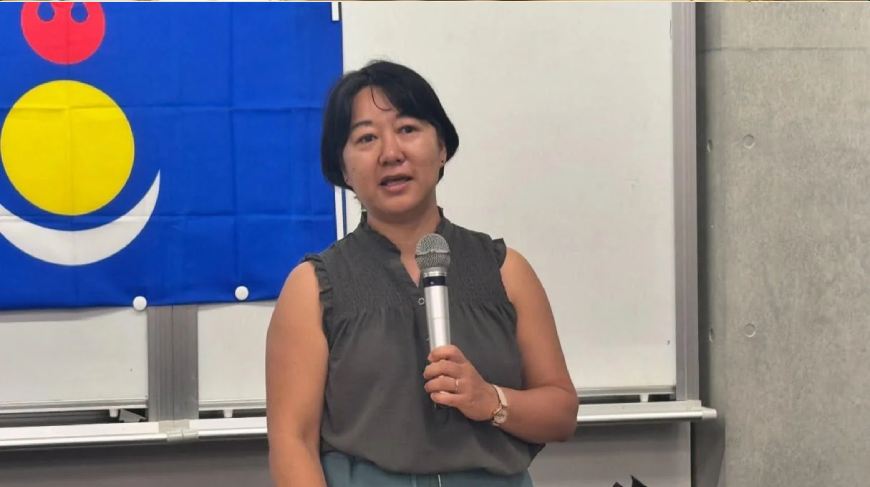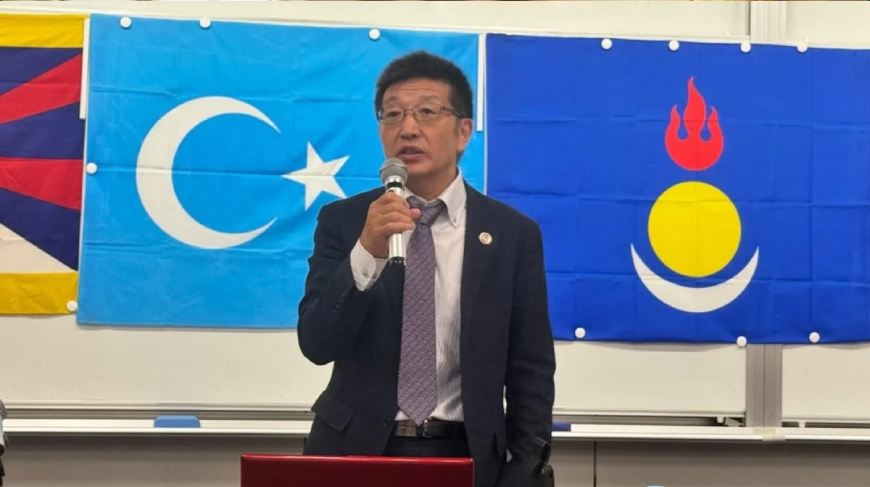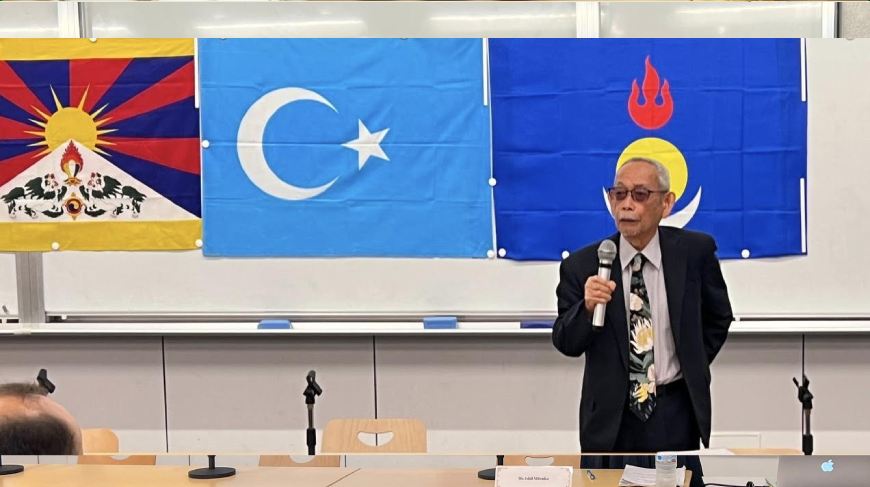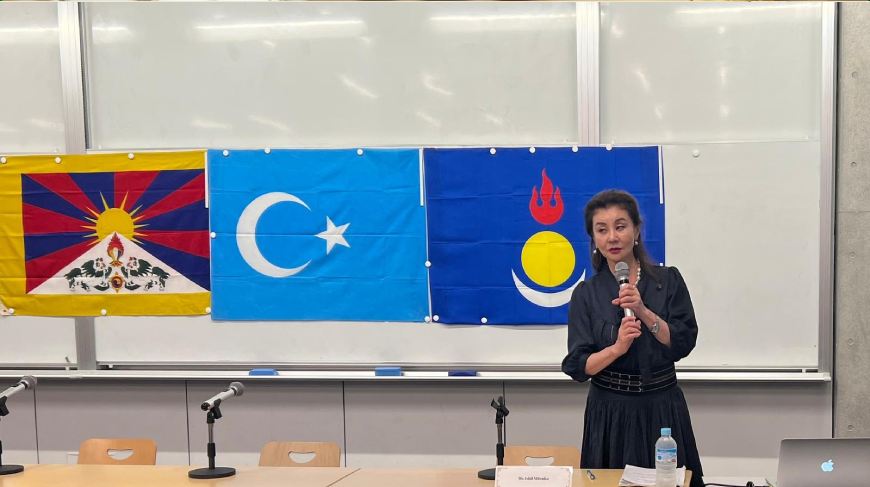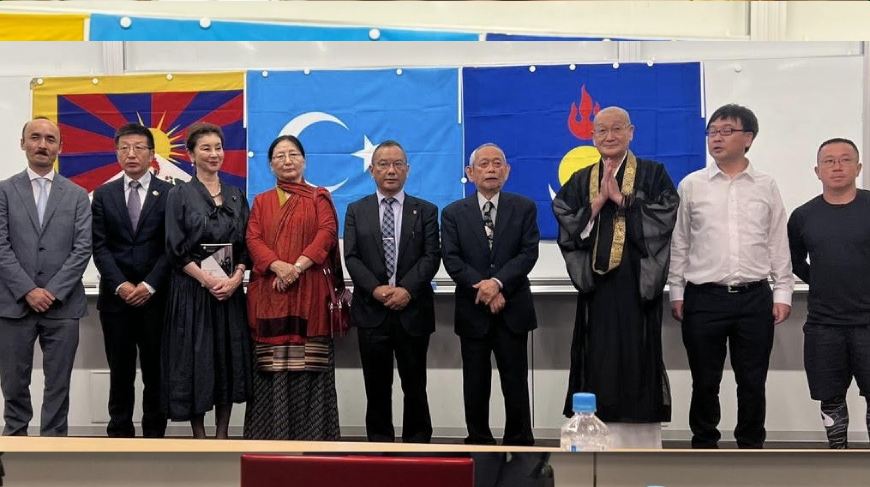Tokyo: Education Minister of the Central Tibetan Administration (CTA), Tharlam Dolma Changra, attended and addressed a seminar titled “China’s Colonial Boarding School, an evil design to Eradicate the minority nationals’ identity” at the University of Tokyo Komaba campus today. Tibet House Japan and Save Tibet Network organized the seminar with the cooperation of the Minority Nationals Conference (Minzoku Daihyokaigi).
Makino Seishu, Chairman of the Save Tibet Network, welcomed the guests, panels, students, and participants and spoke briefly on the importance of the seminar and how China is destroying minority nationals’ identity, language, and religious culture. He said the world needs to change to bring change in China so that all the problems related to the Chinese Communist Party’s (CCP) hegemonic hostility in and around Southeast Asian countries are resolved. He talked about the dreadful nature of the CCP’s Policy to wipe out the national identities of the occupied regions through the colonial boarding schools.
Ishii Mitsuko, a Member of Parliament representing the Japanese Parliamentarian Support Group for Tibet, expressed her support for the just cause of Tibet and other occupied nationals, and the Japanese parliamentarians will work to stop this Chinese policy of denying the children of the minority nationals their language and culture.
Education Minister Tharlam Dolma Changra greeted the panels and the audience and spoke on how China has tried and is still trying to destroy Tibetan identity, language, and religious culture since its occupation of Tibet in 1950. Calling for a united effort to protest these Chinese colonial boarding schools in the occupied regions, “We need to stand up together and urge the Chinese Government to shut down these boarding schools and put an immediate stop to its destructive and dangerous policy. We need to urge the PRC to uphold International Obligations and respect the rights of all its people including Southern Mongolia and the Uyghur population. We must garner allies from Human Rights Organizations, Indigenous communities with similar historical colonial boarding schools, lawmakers, Children’s Rights experts, Parliamentary groups and Organizations, Media, and social networking. Press for Fact-Finding Mission, filing petitions, lobbying, etc. to reopen schools and colleges closed by the Chinese Government.” She said.
Representative Dr Tsewang Gyalpo Arya of the Liaison Office of His Holiness the Dalai Lama for Japan and East Asia, gave a brief presentation on the nature of the Chinese colonial boarding school in Tibet and how it is affecting young children. He shared a video by the Tokyo Broadcasting Service (TBS) on the colonial boarding school and the testimonies of the children about their harrowing experiences in the boarding schools.
Daichin Olhunud of the Southern Mongolian Congress and Retep Afumet of the Japan Uyghur Association spoke and presented on how China has established boarding schools in their respective countries to forcefully indoctrinate the children and deny them of their traditional and native education and values.
Rev. Kobayashi Shuei of the Super Samgha, a Japanese association of monks and nuns supporting peace and justice in Tibet, and Kameda Hirofumi, Chairman of the Dream for Children, shared their knowledge and understanding of the colonial boarding school and urged the audience to see this Chinese colonial boarding school as a serious issue.
Makino Sheishu concluded the seminar and proposed a resolution, which was unanimously agreed by the panels. It was resolved to have the representatives of Tibet, Uyghur, and Southern Mongolia approach the respective Parliamentarian support groups and inform them of this seminar and request the parliamentarian groups to urge China to stop this heinous policy to destroy the minority nationals’ identity.
Prof. Ako Tomoko of the University of Tokyo gave a concluding remark and spoke on the importance of discussion and sharing knowledge and surmised that the seminar provided an excellent opportunity for many to understand the fundamental nature of colonial boarding schools.
The seminar hall saw many Japanese, Chinese, Mongolian, Taiwanese, and Hongkongers attending the seminar and discussing the issue fervently. Kalon T.D. Changra interacted with the panels and the audience, exchanged visiting cards, and thanked them for their support and interest in this issue of the colonial boarding schools. Anri Kitazawa of the Save Tibet Network moderated the seminar.
The Japanese version of the Tibet Action Institute’s report on the Chinese colonial boarding school was distributed to the panels and the audience.
-Report filed by the Office of Tibet, Japan-
